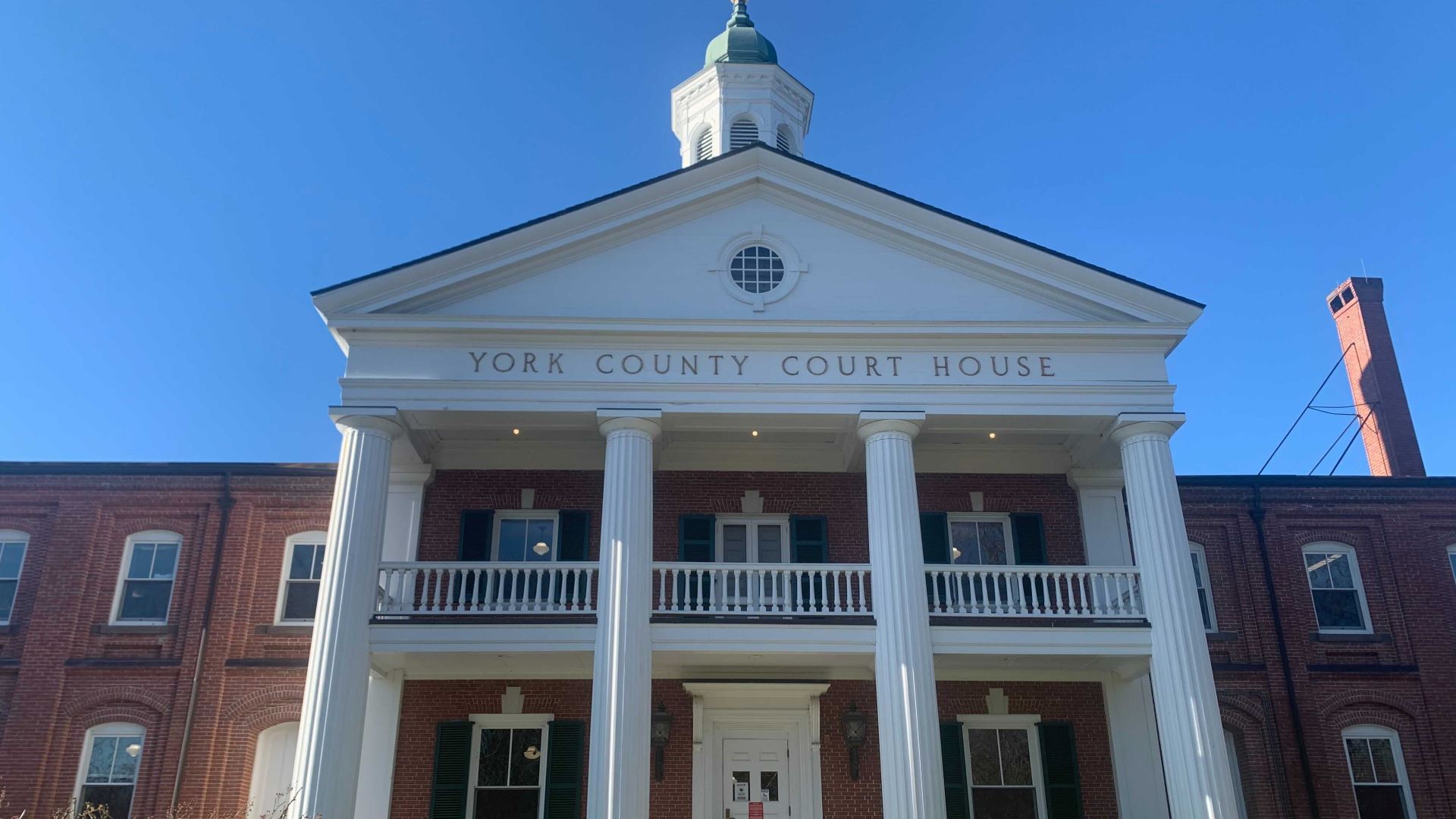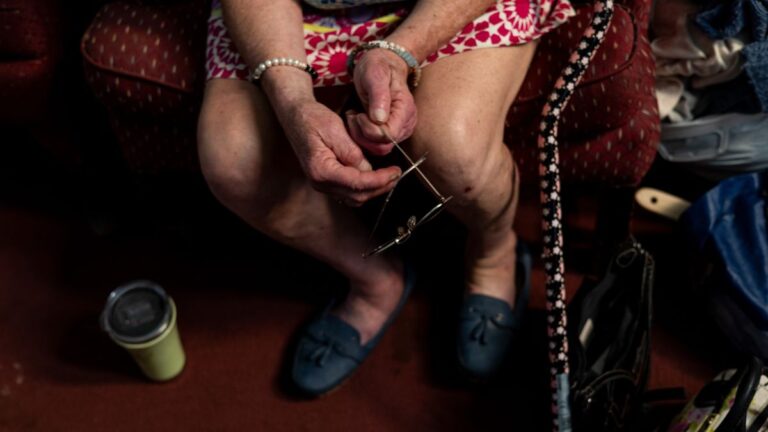Maine’s highest court may hear arguments on whether defendants must show they were harmed by a delayed trial, taking on the right to “speedy trials” amid a historic backlog of criminal cases across the state.
Maine is among the few states not limiting the months or days that can elapse before the government brings a case to trial.
The state’s constitution promises, “In all criminal prosecutions, the accused shall have a right … to have a speedy, public and impartial trial.” But the guarantee of speed is a right that legal experts say is almost non-existent in Maine.
The case Dennis Winchester v. State of Maine is not yet scheduled for oral arguments. This summer, justices invited amicus briefs about the right to speedy trials under the Maine and U.S. constitutions, and asked specifically for “the proper test” the Law Court should apply when assessing possible violations under the state’s constitution.
No defendant has won a speedy trial claim in the Maine Law Court since 1960, according to the ACLU of Maine. Defendants are losing, in part, because of an “elaborate legal test” that Maine courts adopted from the U.S. Supreme Court, which often requires people to show they were harmed by the months- or years-long delay before trial.
“The bottom line is that … it’s nearly impossible for defendants to prove a violation of their speedy trial right,” said Carol Garvan, legal director with the ACLU of Maine.
Dennis Winchester’s appeal could change that balancing test in Maine.
Winchester was indicted by a grand jury in 2014 on burglary and theft charges, and convicted after a trial in 2015. While serving his sentence, prosecutors in Aroostook County brought six more cases against Winchester with nearly two dozen charges of theft, burglary and criminal mischief, court records show. He didn’t go to trial until November 2017.
Winchester eventually lost at trial and agreed to plead “no contest” to the remaining charges the following month.
Winchester, currently incarcerated at the Bolduc Correctional Facility in Warren, is represented in his appeal by Lawrence Winger, who declined to comment before the case is argued at the Law Court.
In the appeal, Winger wrote that in Maine, “the ‘speedy’ requirement has vanished.”
Defendants have the right to a speedy trial in the Sixth Amendment of the U.S. Constitution. In 1974, Congress passed the Speedy Trial Act that ensures federal prosecutors bring a case to trial within 60 days of a defendant pleading not guilty, not counting periods of excusable delays. The deadline was later extended to 70 days.
Forty states and the District of Columbia also passed laws defining a speedy trial in state court, according to the National Conference of State Legislatures. Maine has not.
In practice, time limits are not absolute, and it is very common for defense attorneys to waive a speedy trial. Courts have ruled the government can also exceed these deadlines when there is a good cause, like health restrictions during the COVID-19 pandemic or because the defense caused delays.
Separately, the Law Court recently decided that Maine’s lower courts had not erred in delaying the trials of two men on federal detainers whose trials were moved back on the calendar due to pandemic restrictions. Otherwise, the state would have been required to bring them to trial within 120 or 180 days.
Still, legal experts see an opportunity to change course and “reinvigorate” the right to a speedy trial, making it more than an empty promise on paper.
“This is a really important issue, this right to a speedy trial, especially right now,” Garvan said. “It’s a particularly critical time for the Law Court to be looking at this, so we were really encouraged and happy to see their request for amicus briefs.”
Seeking a different standard
The U.S. Supreme Court has set a high bar for determining if there was a speedy trial violation. Known as the “Barker Test,” judges weigh how four factors may have affected a defendant’s right to a speedy trial, including the length of the delay, the reason for the delay, the defendant’s assertion of his or her rights and the “actual prejudice” — or harm — the delay caused.
This balancing test — in practice — is a labyrinth for defendants to navigate, Garvan said. And even excessive delays are not enough to establish a speedy trial violation, she added.
Winchester’s lawyer argues that Maine should eliminate the harm requirement.
“Until that is done, the written constitutional ‘speedy trial’ right sounds good but is practically meaningless,” he wrote in Winchester’s appeal.
The ACLU of Maine recommends that a year or more delay would be a presumptive violation of a defendant’s right to a speedy trial. The burden would be shifted to the state to show mitigating circumstances that made the delay reasonable. Otherwise the case would be dismissed.
A systemic lack of resources — like the state’s underfunding of its public defense system and the availability of criminal defense attorneys — would not be a qualified reason for delay, Garvan said.
When it comes to speedy trials, time is the violation, said Samuel Gross, professor of law emeritus with the University of Michigan Law School who taught for 31 years, including criminal procedure.
A defendant’s chances of proving a different outcome could have been possible had the case gone to trial earlier are remote, short of a situation such as an eyewitness dying, he said.
“The rule has to be, just has to be, that the prejudice is the delay itself because otherwise the rule would simply evaporate,” Gross said.
Pandemic delays add urgency
The Law Court’s possible review of Winchester’s cases comes amid a historic backlog of criminal cases in the state court system. Trials were delayed in most cases due to social distancing requirements as a result of the COVID-19 pandemic.
Nearly all Maine courts have more pending felony and misdemeanor cases now than before the pandemic.
“We have a unique situation here because of the pandemic that’s generated unusually long delays in trials both criminal and civil,” said Donald Alexander, a retired Maine judge and former Associate Justice of the Law Court.
“This is the first time that I can recall a serious constitutional delay of access to jury trial — issue — coming up.”
Alexander was appointed to the state Supreme Court in 1998 by then-Gov. Angus King and stayed on the bench until retiring on Jan. 31, 2020. The Law Court’s request for amicus briefs indicates that justices recognize there is a “big issue” in the case, though it is not a signal that they will take a particular action, he said. The decision to request amicus briefs was typically done informally without a vote, he said.
Questions about speedy trials were rare prior to the pandemic, Alexander said. Sometimes a speedy trial claim would be raised on appeal, but Alexander said he couldn’t recall a prior time that Maine courts were having a systemic problem bringing cases to trial.
In the past three years, Maine Pretrial Services has seen the average length of time it takes a defendant to get from arraignment to disposition of their case increase by approximately a month. According to data collected by the nonprofit, average supervision lasted:
- 148 days in 2019
- 184 days in 2020
- 190 days in 2021
The increased time can anecdotally be attributed to changes in court processes during the pandemic, said Elizabeth Simoni, executive director of the nonprofit that provides pretrial supervision and reporting services in 11 counties. The additional weeks to resolve a case and being required to report can be a hardship on defendants, she said.
The success rate of the program remains high, between 86% and 88%, and failure to appear in court remains below 1% for the more than 3,000 defendants offered pretrial contracts in the past three years.
Currently, some defendants are waiting six months for their next court appearance — not even trial.
Defendants who had their first court appearance in Waterville District Court in late June 2022 were not scheduled to appear in court again until early January 2023, according to Court Watch Maine, a volunteer group that has observed court proceedings in Augusta, Waterville and Skowhegan.
Volunteers observed 11 arraignments in June and July 2022. Most of the people were charged with low-level misdemeanors.
Maine courts also are struggling with staffing shortages, Alexander said, based on conversations he’s had with people still working within the Judicial Branch. There are not enough judges, court officers or security guards to run the courthouses, which adds to the delays, he said.
Like many other professions, employees retired or quit because of the stress and interpersonal interactions during the pandemic.
“If you can’t hire court officers that are qualified and you need qualified people to deal with the difficult interpersonal situations you find in courts, if you can’t hire them within the funds you have appropriated, then you need more appropriated funds and that’s not within the control of the courts,” Alexander said.
Time limits for trial
Speedy trials are especially important for relatively minor criminal charges, legal experts said. People who can’t afford bail can languish in jail if they don’t receive a speedy trial. The result is that for minor violations, they might spend more time behind bars awaiting trial than the actual sentence.
“My sense is that there is a different, more aggressive constitutional standard when you’re dealing with people who are incarcerated in terms of getting them to trial and meeting speedy trial requirements,” Alexander said.
Legal experts told The Maine Monitor it would also be beneficial for the state Legislature to pass a law defining a speedy trial.
The American Bar Association recommends that states adopt a statute requiring the state to bring a case to trial within 90 days of a person’s first appearance in court if they are in custody and within 180 days for people released prior to trial.
Alexander said the ABA’s recommendation is aspirational and too low in reality. In his experience as a Maine trial judge, cases were not being scheduled for trial within three months, though six months was possible, albeit rare, he said.
There is a temptation to set one standard to be equally applied to all cases, but that does not take into account that certain types of cases take more time than others, said Daniel Pi, who teaches criminal law and criminal procedure as a visiting professor of law at the University of Maine School of Law.
Where six months elapsing before trial may be reasonable in one case, it could be completely unreasonable in a much simpler case, he said.
“At the end of the day, what it’s going to be is a flexible standard,” Pi said. “The consequence (will) be that there’s going to be a lot of court discretion there. The nature of the problem is such that it’s really hard to draw bright lines and say past this point it’s definitely a violation of speedy trial.”
The remedy for a speedy trial violation is dismissal of the charges without the option for the government to refile the case, legal experts said.
Pi said he will be interested to see how the court handles speedy trial claims of defendants whose trials were delayed because of the pandemic and the court’s systemic delays getting cases to trial, he said.
“Maine can solve this problem very easily, right, just put a lot more money into the court system. Pay for a robust public defender system, not just six people,” said Pi, referencing the state’s first five public defenders approved to be hired later this year. “Then, problem solved. And so you can say at the end it is the government that is not providing the speedy trial because they’re not supporting the courts enough.”
Samantha Hogan reports on government accountability and the criminal justice system for The Maine Monitor. Reach her by email with ideas for other stories: gro.r1765655661otino1765655661menia1765655661meht@1765655661ahtna1765655661mas1765655661.








